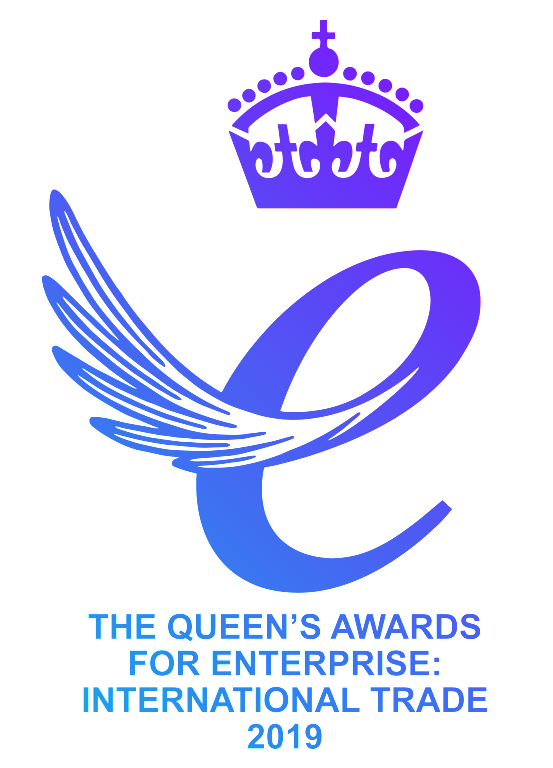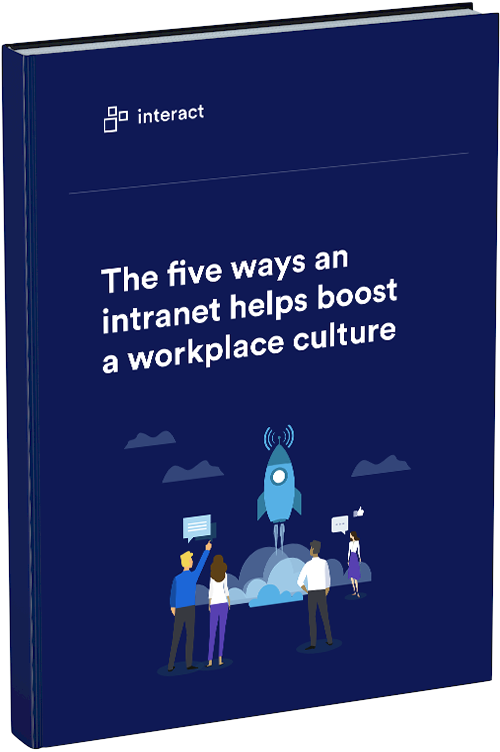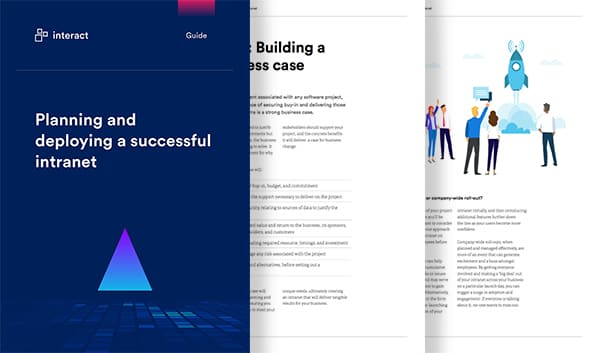Breaking borders: our journey to become winners of the Queen’s Award for Enterprise for International Trade

Interact has secured the highest official accolade for business in the UK from Her Majesty The Queen.
For any readers who may not be too familiar with The Queen’s Awards for Enterprise, the program has been running since 1965 and recognizes organizations who excel at International Trade, Innovation or Sustainable Development. They are the highest official UK award for British businesses and we couldn’t be more proud of our achievement.
Here’s our story from Manchester start-up, to global award winner.
In today’s global economy, the growth of international trade is crucial for prosperity and longevity for many organizations. Interact won its first US customer back in 2010 and has since expanded rapidly, now serving over 1 million customers throughout the US and Canada, EMEA, and Australia. It’s been quite a journey.
To mark this incredible achievement, we’re taking a walk down memory lane to explore the highs, lows, and lessons learned from growing Interact from its humble Manchester beginnings, to a leading worldwide intranet provider.
Back to the beginning
Interact started life as Odyssey Interactive, established in 1996. Originally a software development company, the business received a request for an ‘internal website’ in 2002. Our first intranet was developed in 2003: the rest, as they say, is history.
This shift into the intranet space saw Odyssey Interactive capture the attention of investment company Hasgrove, who became the parent company in 2007. Our niche was set: we began trading as Interact, specializing in the development of internal communication solutions.

UK-based roots
Building a solid foundation and depth in your primary market, with some established customers, is crucial before dipping a toe in international waters.
Scott Hitchins, Global VP of Sales
Interact is proud to be a British-based company, headquartered in Greater Manchester since our beginning. Our original growth strategy focused on targeting UK-based organizations, delivering an ‘out the box’ solution that could be deployed quickly and focused on usability as its USP.

In a market that traditionally catered to IT, we went against the grain and instead looked to engage with those in Communications and Marketing. Intranet software had historically been all about information management: documents, company updates, policies. Many were built in-house and required the IT department to step in for even the smallest update or task. Not Interact.
It was an approach that struck a chord with those sectors facing challenges with internal communication. We flourished in industries such as housing associations and the non-profit sector, growing our customer base to reach 250,000 users by 2008.
Going Global: 10 lessons learned from crossing the border
Thinking about going global
Scoping, planning and asking the right questions before diving in are important; but it’s also a question of timing, and taking a calculated leap of faith.
Simon Dance, CEO, Interact
Rapid product development and enhancement – including the adoption of social technologies such as @mentioning and hashtags, timelines and blogging, and investing in integration functionality – all broadened the appeal of our product to new audiences.
Interact began working with bigger companies; those with international reach, sister companies, and winning some more recognizable logos, such as security services provider ADT: our first 10,000 user intranet.
The result was incremental wins in new markets; Interact initiated its Partner Program and began to see sales in Australia, Europe, and our first US customer in 2010.

“There are a few key considerations for every business considering scoping their first international market,” says Scott.
“For example, are we – and our product – mature enough? What’s the opportunity, the total addressable market – and who else is already competing in that space? Will we face operational issues? What effort is required?
“But it also comes down to the right set of circumstances lining up, and deciding to take a calculated risk. Sometimes, you just have to bite the bullet and say, ‘screw it – let’s go for it’. But once you make the decision, you have to commit.”
Breaking Stateside

In 2011, Interact acquired Viviant, a US-based organization in Dallas specializing in delivering intranet solutions. This opened the door for more direct sales within the US. With relatively low barriers to entry, particularly around language, culture and our ability to market to, sell to, and service customers, North America was a logical choice as a key export territory.
Interact began to invest more into US-focused marketing, passing leads to sales in Dallas, which became our first US office between 2011-2013. We began to see increased traction from the east coast, including New York, Boston and the surrounding area; in 2014, this led to a tactical decision to move Interact US HQ to New York.
“One of the big things we found was the value of being with, and learning from, our customers. That two-way support was a big part of the learning curve: while we were educating our customers on our product and services, they were teaching us the differences in operating in the US market,” says Bianca Hartley, VP Marketing.
“You can never assume that even in markets that speak the same language, such as the UK and the US, that the same marketing and sales practices will automatically translate. It’s not a case of ‘copying and pasting’ your existing strategy into a new market and hoping for the best.
“We began to understand better the customer expectations in terms of level of service and support, finding that many US customers wanted a hands-on approach and more regular check-ins. Even subtle language variances made a difference: we soon learned that terms such as ‘bespoke’ and ‘scheme’, which were an established part of our UK business vocabulary, don’t translate in the same way across both markets. We began to evolve our marketing and positioning in response.
“Despite those differences, one thing we did find is that the typical challenges that lead people to work with us do translate. Regardless of where an organization is based, leaders report the same challenges in connecting their people and information.”
Between 2014-2015, US new business opportunities grew by 134.6%. Senior leaders from Interact were going out on a regular basis to support sales and marketing, nurturing the new office and relationships with early stage customers.
Going Global: 10 lessons learned from crossing the border
Building our US workforce
2015 marked a period of heavy investment in recruitment, as Interact continued to gather more interest, traction and brand awareness in the intranet space.

“We soon learned the importance of understanding hiring market conditions thoroughly. New York is a competitive market and the expectations were very different from Dallas. And although Interact as a whole was an established business, it was still relatively early days from a US perspective. Staff joining our team would be coming into almost a start-up environment: a very small team, with occasional periods of working in solitude”, explains Scott, SVP Global Sales.
“We learned from our early hiring processes to hire slowly and identify the traits you’re looking for clearly. We needed individuals who could work independently, were perhaps used to home working with little to no support and would be able to self-start. They would need to be able to handle things when the UK head office were operating 5 hours ahead.
“Taking a trait analysis approach and interviewing regularly enabled us to make better long-term hiring decisions and grow our team.”
With the hiring of more US staff, we were also able to tap into the knowledge and experience of those joining the team. This included advice from one of our earliest US hires, Daren Jennings, who progressed to become US VP of Sales and join our senior management team. With on-the-ground advice on things such as benefit packages, we could ensure Interact was attracting the right talent. Part of the process of growing into a new market is having those critical conversations and tapping into the knowledge of others.
Reach vs. depth: growing our US presence
Interact was securing more enterprise-level sales, working with names such as Sheetz, Frontier Communications and Cable and Wireless. Alongside the growth of our team, this saw the first of several office moves within New York in 2015, and again in 2016. It was also in 2016 that we made the decision to increase our reach with the opening of an office in San Francisco.

Just as we’d found different market expectations when setting up in New York, the same was true for the west coast. Competing for staff alongside Silicon Valley organizations presented some challenges; the addition of another time zone also added some complexity to how we worked. Our services team, for example, was now split between the east and west coast.
“Sometimes you need to accept when something isn’t quite working for you. After a period in San Francisco, we were still continuing to gain the majority of our sales in the east and we already understood the value of being where our customers were,” explains Rachel, Interact COO.
“When we weighed up the timezone and recruitment challenges vs. the customer acquisition numbers, it was clear the marketplace on the west coast didn’t support our strategic growth plan. We needed to concentrate on continued growth in the east and align ourselves with our customer base: focusing on building depth in a market we were already strong in.”
The San Francisco office was closed in 2017, with tactical focus shifting back to New York head office. In the same period, Interact saw another NY office move and more big wins.
Reflecting back, looking forward
“Learn how to sleep on a plane,” jokes Scott, SVP Global Sales, when asked what advice he’d offer others looking to expand globally.

“Go there. A lot. Interview, meet with customers, get local knowledge, chat with your employees, take their advice. It’s a learning curve, so you’ve got to be open to feedback and ideas.”
Interact has always prided itself on being customer-led, with our 97% customer retention rate reflecting the commitment we put into building long-term partnerships with those we work with. Our expansion in the US has brought some additional considerations into the mix. From a tech perspective, the US market is anything between 18 – 24 months ahead in terms of developments and trends: we see that reflected in the product requests from our US customers, which help us shape our roadmap. Agility is key.
Processes and models also needed to be redefined and reshaped.
In the UK, face to face meetings are fairly easy to attend; we’re geographically small by comparison to the US, where remote selling is more common.
So, although we train our people in the same way and hold them accountable to the same sales process, the typical touchpoints and cycle differ between the two regions. We carry out more online meetings in the early stages of the sales process in the US; unlike other teams in Interact, we also have a US-based VP who heads up Sales. This has allowed us to build relationships with prospects on the ground and adjust our local sales methods to suit the market.
A ‘US first’ approach to our marketing was adopted in 2017. This included bringing onboard Marketing staff in our US office, who could support us with experience and knowledge required to geo-target our marketing efforts. This included, for example, appointing a US Marketing Manager and a US Content Writer: reflecting the need to tailor to the local market.
We’ve also brought onboard US home-based staff to join our professional services team, who can provide remote support throughout the region, or be more easily deployed to customer locations when in-house training or strategy support is needed. Accompanied by our flexible working hours, use of technology and agile approach to working, we’re addressed many of the traditional timezone challenges faced by organizations crossing the border.
We estimate a total addressable market (TAM) in North America of 29,975 organizations of 500+ employees: Interact’s ‘sweet spot’. Currently only 0.33% are Interact customers, so the potential for growth is extensive. Receiving recognition in the form of the Queen’s Enterprise Award is a testament to what we’ve achieved so far: but in reality, this is just the beginning.

Going Global: 10 lessons learned from crossing the border

